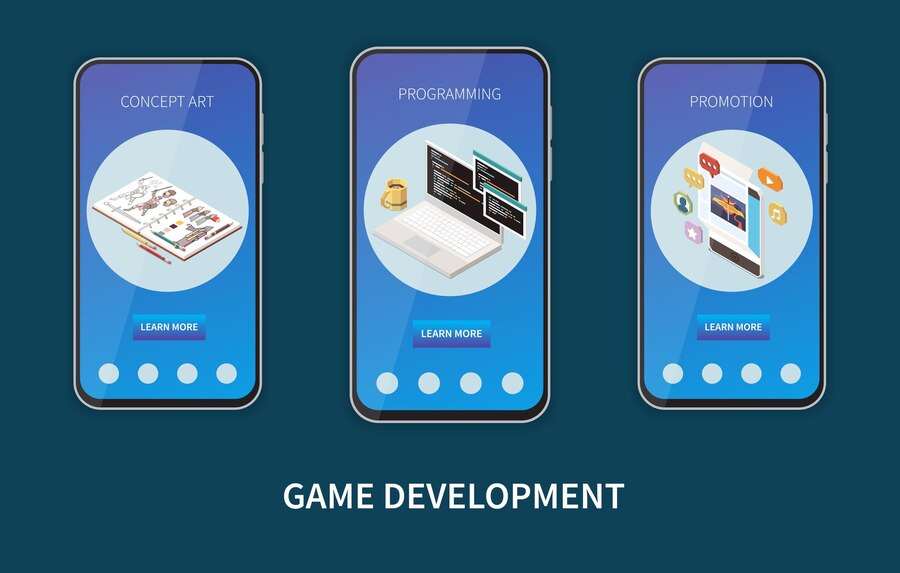Bug-Free Gaming: Why QA is the Backbone of Successful Game Development
Game development follows a complex multi-step path which includes both creating and finally releasing the game product. The most vital yet sometimes disregarded component of this development sequence is Quality Assurance (QA). QA teams test games exhaustively to confirm they have no bugs along with eliminating program faults and speed limitations which occur before the game reaches gamers. The game development outcome relies on thorough Quality Assurance procedures that target PC and Android game titles to achieve seamless gameplay interaction. The article determines how QA serves as the fundamental element supporting quality game development while outlining its industry effects. The Role of QA in Game Development QA acts as an essential element of game development to guarantee products achieve precise standards and fulfill consumer needs. Game testers examine the development cycle to discover issues like bugs together with gameplay issues as well as graphical problems that would diminish the player experience. Any game released without QA quality assessment services leads to public criticism and financial setbacks for developers because their products contain numerous operational flaws. Android game developers must conduct rigorous testing to verify proper performance across different platforms because there is a diverse array of devices and operating systems running their games. Functional testing stands as a primary duty of QA teams during their performance evaluation processes. The inspection of mechanics physics and control systems verifies their intended functionality during this process. All detected irregularities go into the report that developers need to resolve. QA services include extreme performance testing which subjects games to massive load situations for evaluating their capabilities. In multiplayer and online gaming the stability of the server alongside its quick response times remains absolutely crucial. Digital products made with a high-quality QA process maintain player interest by delivering a smooth final experience. Android game development needs the essential role of QA testing The variety of computing devices and their display dimensions together with their hardware setups create special obstacles during Android game development. The wide range of hardware fundamentals in Android games requires developers to achieve gameplay performance that functions properly across multiple thousands of devices. Stringent QA testing becomes an essential requirement because of this situation. Optimizing performance remains a key matter in developing games for Android platforms. QA teams conduct checks on different devices as part of their testing routine to find problems involving performance lag system crashes and power drain. The testing of compatibility must remain a crucial part because it verifies game performance across devices with different Android versions and various specification levels. Such measures help to stop typical problems between frame rate drops unresponsive controls and distorted graphics. Security testing constitutes an important aspect of the QA practices of Android game development. The review of mobile games through QA testing includes assessments of user data storage together with in-app purchase security to prevent hacker vulnerabilities. A security breach leads to monetary losses along with harming both a developer’s reputation as well as their finances. QA testing of games through extensive evaluation leads to polished gameplay experiences with enhanced security features enabling developers to provide strong entertainment value for players. Common Bugs in Game Development and How QA Resolves Them Game implementation contains two main types of defects including visual problems that affect graphics along with errors that halt game progression entirely. Some common issues include: A game failure that suddenly stops operating occurs because of either memory leaks or incorrect coding. The examination process determines the original problem source before presenting solutions. Unresolved visual glitches including missing textures alongside flickering objects create significant issues for gamers when enjoying a video game. QA testing focuses on resolving these issues by conducting evaluations of various resolutions and graphic configurations. The gameplay suffers from performance drops because frame rates experience fluctuations while lagging occurs. QA professionals verify that optimization implementations including load balancing and memory efficiency optimization techniques are correctly implemented. The lack or wrong manipulation of sound effects in video games creates major audio defects which makes the game experience less satisfying. The QA process detects all inconsistencies while double-checking the correct synchronization of audio elements. Customers get frustrated by gameplay issues which include characters with too much power and unexpected difficulty level changes together with gameplay malfunction. The process of QA testing refines essential gameplay features to establish equilibrium between them. Systematic testing performed by QA teams discovers product defects that they find before releasing games to the audience. Final versions of the game are optimized after developers conduct essential patches to fulfill quality requirements. The evaluation process becomes essential for Android game development because different device combinations require extensive testing. The Business Impact of QA in Game Development Companies that invest in QA gain more than better performance since their investment leads straight to commercial game success. A game tested thoroughly brings happiness to players resulting in positive ratings received from players and their friends. The release of a game with technical flaws results in decreased player satisfaction which leads to negative ratings and diminished sales together with associated financial costs of customer refunds and bug fixes after launch. User retention stands as the essential success measure in developing Android games. Frequent performance failures within games lead players to delete them because they choose to switch to alternative games from competitors. The revenue streams for mobile games heavily depend on in-app purchases together with advertisements. A game lacking proper optimization through fast performance leads users to disengage which results in reduced profitability. The gaming industry demands businesses to protect their reputation because it determines their ability to thrive in the long run. The release of refined high-quality video games allows developers to establish trust in both player communities and content producers. Future partnerships together with funding potential and a broader customer base become accessible when developers establish their reputation. The quality assurance process represents an investment for sustained profitability along with establishing brand reliability. Future Trends in QA for Game Development Modern technology drives the evolution of QA service










